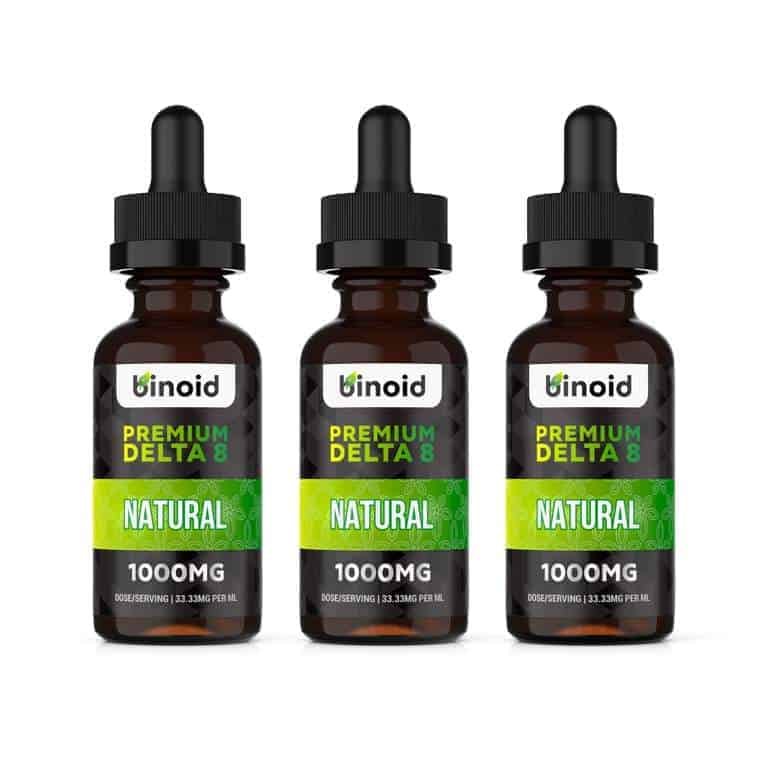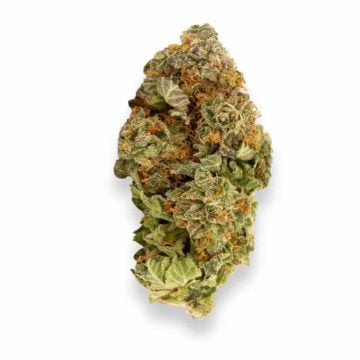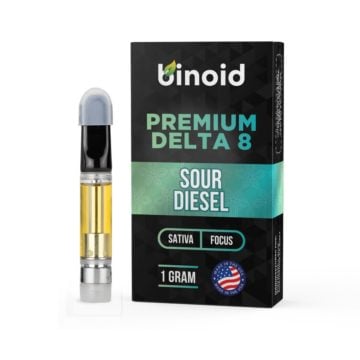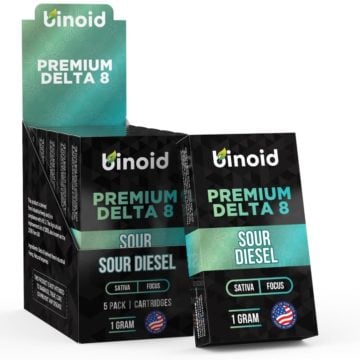
Is Medical-Only Weed Legal in Missouri
In this comprehensive article, we will delve into the intricate details of the legal status of medical-only weed in Missouri. We aim to provide you with an in-depth understanding of Missouri’s medical cannabis program, covering eligibility criteria, patient rights, regulations, and the potential benefits and risks associated with medical cannabis usage.
This post is intended as information and for general knowledge only. It is not a substitute for medical advice, diagnosis, or treatment. It is recommended that you talk to a healthcare professional about this before introducing cannabinoids into your daily routine (especially if you have been diagnosed with any medical conditions or are under any medication). It is not recommended to drive or operate any machinery when using cannabis- or hemp-derived products. Use responsibly!
Understanding Missouri’s Medical Cannabis Program
Overview of Legalization
The journey of medical marijuana’s legalization in the Show-Me State was marked by significant developments. The advent of Article XIV of the Missouri Constitution paved the way for medical cannabis by enabling the establishment of a regulated program. This marked a substantial shift in the state’s approach to marijuana, differentiating medical use from recreational use.
Regulatory Framework
The Missouri Department of Health and Senior Services took on a pivotal role in regulating and implementing the medical cannabis program. This department plays a crucial part in ensuring that the cultivation, distribution, and usage of medical cannabis adhere to the stipulations of the Missouri Constitution. Through careful oversight and consistent updates, the department upholds the integrity of the medical cannabis landscape.
Eligibility and Medical Conditions
Qualifying Medical Conditions
Missouri’s medical marijuana law recognizes a diverse range of medical conditions that warrant the use of medical cannabis. From debilitating chronic pain to conditions such as epilepsy and multiple sclerosis, the scope of eligible conditions is designed to encompass a variety of healthcare needs.
Application Process
Prospective patients embark on the journey to becoming a medical marijuana patient by submitting a comprehensive application. This process involves providing accurate medical documentation, demonstrating the presence of a qualifying condition, and completing the required paperwork. This meticulous procedure aims to ensure that only individuals with genuine medical needs gain access to medical cannabis.
Medical Documentation
Health care providers play an instrumental role in the medical cannabis application process. Their expertise is leveraged to verify the presence of qualifying medical conditions and recommend appropriate treatment options. The collaboration between patients and healthcare practitioners is pivotal in establishing the medical basis for cannabis use.
Dispensaries and Access
Licensed Dispensaries

Across cities such as St. Louis and Kansas City, licensed dispensaries have emerged as key points of access for medical cannabis. These establishments, authorized by the state, are tasked with providing medical-grade cannabis products to eligible patients. Both retail dispensaries and cultivation centers contribute to the accessibility of medical cannabis across the state.
Dispensary Locations
The geographic distribution of dispensaries across Missouri reflects a commitment to ensuring equitable access to medical cannabis. Patients, whether they reside in urban centers like Jefferson City or rural areas like Greene County, should ideally have access to nearby dispensaries. This strategic distribution aligns with the state’s objective of promoting public health through responsible medical cannabis use.
Product Availability
Missouri dispensaries offer an array of medical cannabis products designed to cater to diverse patient preferences and needs. From dried unprocessed marijuana, commonly referred to as flower, to infused edibles and tinctures, patients have the option to select a product that aligns with their medical requirements. Dispensaries ensure that product information, including potency and usage guidelines, is readily available for informed decisions.
Possession and Consumption Regulations
Legal Possession Limits
The legal framework surrounding medical cannabis possession hinges on establishing clear limits. Missouri law defines specific possession limits, ensuring that patients possess quantities that are consistent with medical necessity while preventing excessive accumulation. Adherence to these limits is essential for remaining compliant with the state’s medical cannabis program.
Approved Consumption Methods
Patients gain access to various consumption methods, each with its own set of considerations. Smoking and vaping offer rapid onset of effects, while oral consumption methods like edibles provide longer-lasting relief. The array of consumption methods empowers patients to tailor their cannabis experience to their medical needs.
Public Use Restrictions
Despite the legality of medical cannabis use within the program’s confines, it’s important to note that public consumption is restricted. Patients should exercise discretion and consume their prescribed cannabis products in private settings to comply with both the letter and spirit of the law.
Patient Rights and Responsibilities
Legal Protections
Patients who qualify for the medical cannabis program benefit from certain legal protections under Missouri law. Employment law, for instance, delineates the rights of medical marijuana patients while also accounting for employers’ concerns. These protections contribute to safeguarding the rights of patients to access medical treatment without facing unwarranted discrimination.
Adherence to Regulations
Responsible medical cannabis use goes beyond eligibility and extends to adherence to regulations. Patients are entrusted with the responsibility of adhering to proper storage methods, ensuring that their medical cannabis is not accessible to unauthorized individuals. Compliance with dosage recommendations and usage guidelines is vital for maximizing therapeutic benefits while minimizing risks.
Non-Discrimination Measures
In the broader context of health care, non-discrimination measures play a pivotal role in promoting equitable treatment. Missouri’s medical cannabis program is designed to safeguard patients from discrimination due to their status as medical cannabis patients. This ensures that patients can access medical care without fear of bias or stigmatization.
Healthcare Practitioner’s Role
Certification Process
Healthcare providers play a critical role in the certification process, evaluating patients’ medical conditions and determining their eligibility for the medical cannabis program. This involves a thorough assessment of patients’ medical histories and current health status, with the goal of ensuring that medical cannabis is a suitable treatment option.
Patient Consultation
Patient consultations within the medical cannabis context encompassdetailed discussions between patients and healthcare practitioners. Providers leverage their expertise to assess the appropriateness of medical cannabis as part of patients’ treatment plans. These consultations are essential for guiding patients toward effective and safe medical cannabis use.
Legal and Ethical Considerations
Healthcare practitioners operate within a framework that demands consideration of both medical efficacy and ethical considerations. Recommending medical cannabis involves navigating complex legal and ethical terrain. Balancing patient well-being with compliance to state regulations presents healthcare practitioners with a unique set of challenges that require thoughtful decision-making.
Potential Benefits and Risks
Medical Benefits
The medical cannabis landscape is replete with potential benefits, with research suggesting its efficacy in managing conditions ranging from chronic pain to anxiety disorders. For patients seeking alternatives to traditional treatments, medical cannabis presents an avenue for relief that aligns with their healthcare needs.
Risk Assessment
Like any medical intervention, medical cannabis use carries its own set of risks and considerations. Patients must be informed about potential side effects, including cognitive effects and the risk of developing a dependence. Furthermore, interactions between medical cannabis and other medications underscore the importance of transparent communication with healthcare practitioners.
Informed Decision-Making
The cornerstone of responsible medical cannabis use is informed decision-making. Patients should be equipped with accurate and balanced information about the potential benefits and risks associated with medical cannabis. This empowers patients to engage in conversations with healthcare providers, enabling collaborative treatment planning that aligns with their unique medical profiles.
Future Outlook and Legislative Updates
Upcoming Changes
The landscape of medical cannabis is continually evolving, with potential legislative changes on the horizon. Conversations within the state legislature might lead to the inclusion of additional medical conditions within the program’s scope or adjustments to possession limits. Staying informed about these developments is crucial for patients, healthcare practitioners, and the public.
Federal Impact
Missouri’s medical cannabis program operates within the broader context of federal law, which continues to shape the regulatory environment. The potential rescheduling of cannabis or shifts in federal enforcement priorities could reverberate through the state’s medical cannabis landscape, influencing both access and regulation.
Patient and Practitioner Preparedness
As the medical cannabis program evolves, patient and practitioner preparedness becomes paramount. Staying abreast of legislative updates, regulatory changes, and shifts in medical knowledge equips patients and healthcare practitioners with the tools needed to navigate a dynamic landscape. Engaging with reputable sources and professional networks can aid in this ongoing process of adaptation.
Conclusion
By delving into the intricacies of Missouri’s medical-only weed legalization, this article has provided a comprehensive resource for patients, healthcare practitioners, and the general public. Understanding the eligibility criteria, regulations, and potential benefits and risks of medical cannabis is vital in making informed decisions and navigating Missouri’s evolving medical cannabis program. Always ensure to consult official sources and legal experts for the latest and most accurate information.

















